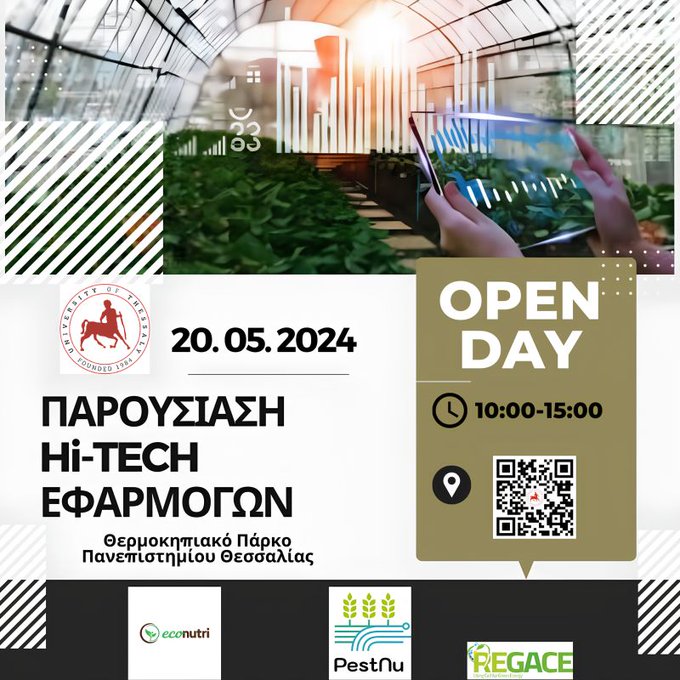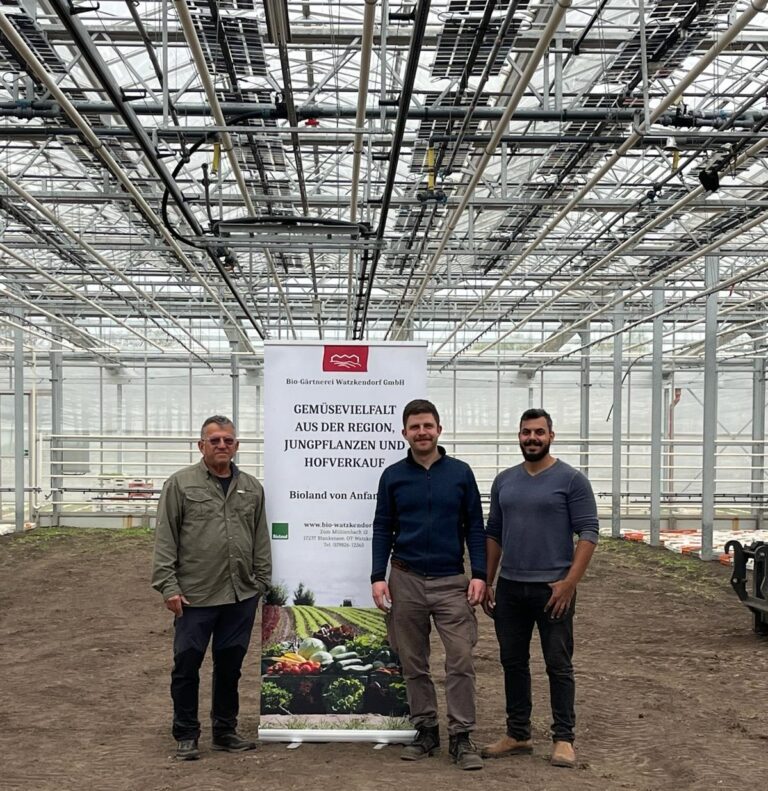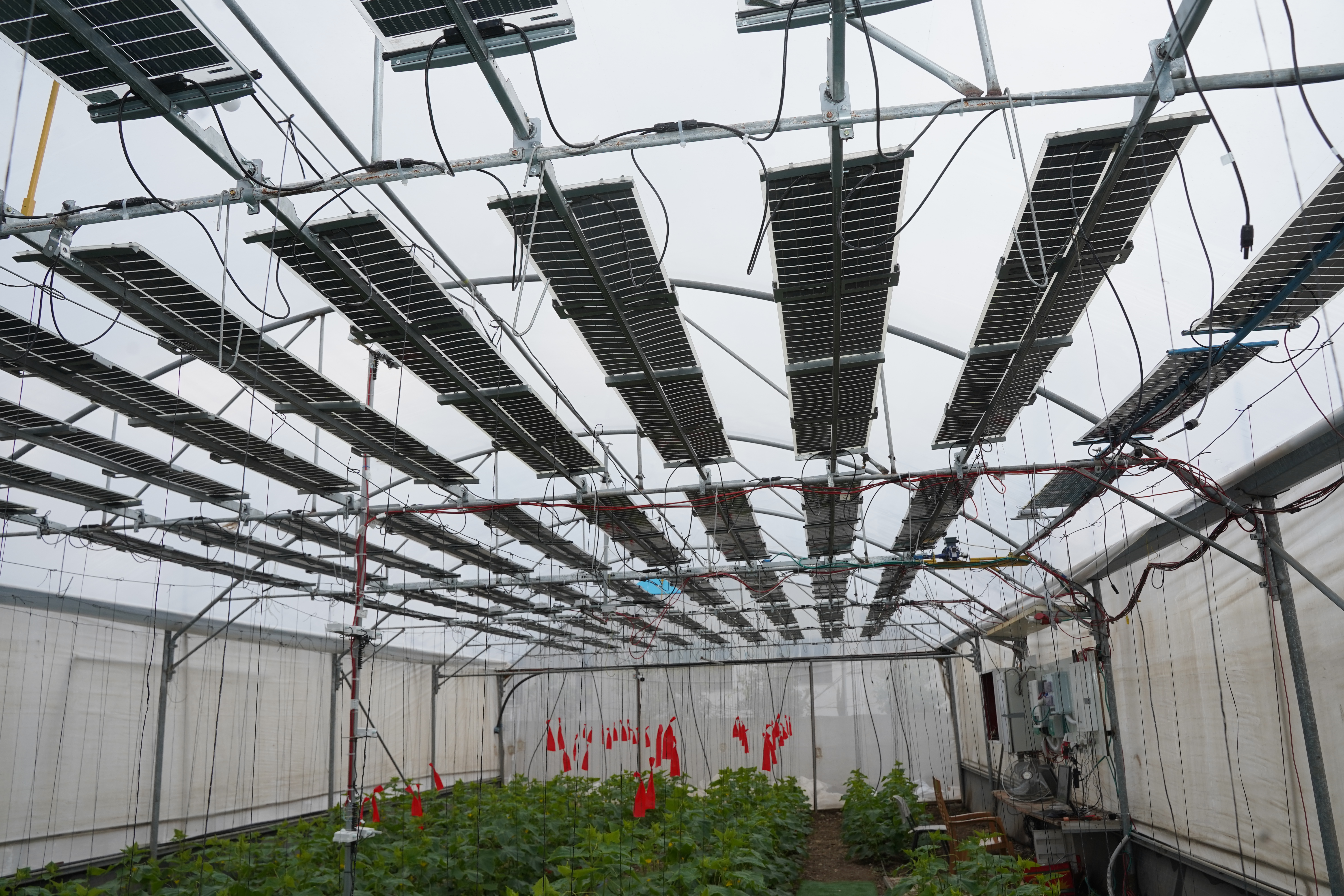The EU-funded REGACE project was presented to a group of twelve Italian farmers during the first world café event taking place on February 7th, at Fattoria Solidale del Circeo.
Professors Cristina Cornaro and Andrea Volterrani from the University of Rome Tor Vergata guided a day event, accompanying the farmers, visiting for the first time the experimental agrivoltaic modules installed at the Fattoria Solidale del Circeo.
The day began with a technical presentation by Professor Cornaro, unveiling the characteristics of solar panels developed by project partner, Trisolar, and which is being tested within the REGACE project. Dr. Berardo di Stefano then offered his experience as part of the project in greenhouse installation and experimenting.
Participants toured the greenhouse, witnessing the panels in action alongside a remote-controlled demonstration of their efficacy in nurturing zucchini crops, enriching the crops with CO2 while producing solar energy.
The farmers had the opportunity to evaluate the organization of the crops in the greenhouse (both the group directly involved and the control group) and to understand the functioning dynamics of the double-cell panels. They apprehended the methods by which panel mobility is used to follow the course of the sun, and learned how the CO2 enrichment, derived from the solar plant, can support the growth of greenhouse crops.
After lunch, the afternoon co-construction session, based on participatory methods, began with Open Space Technology (OST). In the perspective of the REGACE project, this technique allows participants to identify opportunities, risks, and potential developments of a technology innovation.
Following the implementation of the Open Space Technology, a subsequent phase involved the convening of a World Café session, which served as an additional participatory mechanism fostering collective deliberations aimed at synthesizing the primary outcomes derived from the Open Space Technology process.
Challenges surfaced, including concerns over costs, return-on-investment, due diligence in assessing suitability, crop selection, and solar modules maintenance. Participants also discussed the balance between daytime and nighttime usage and optimal crop orientation.
Conversely, discussions unearthed promising opportunities, such as dual use (energy and crop), the shift towards a precision agricultural model, reduced energy expenditure, and a move towards a new farming business model, including digitalization and energy self-sufficiency.

Looking ahead, attendees envisioned integration of solar systems with irrigation networks, enhanced crops monitoring capabilities, further digitalization, and the possibility of establishing energy communities.
Throughout the day, an atmosphere of cooperation prevailed, evident in the multitude of questions posed by farmers to the REGACE Project working group.
Participants parted ways with the promise of reconvening in three months to assess zucchini crop progress and to consider technology costs and benefits in a medium term.
In summary, the REGACE Project’s first world café at Fattoria Solidale del Circeo sparked fruitful dialogue and shared exploration, paving the way for innovative advancements in agricultural technology and fostering collective empowerment among participants.



